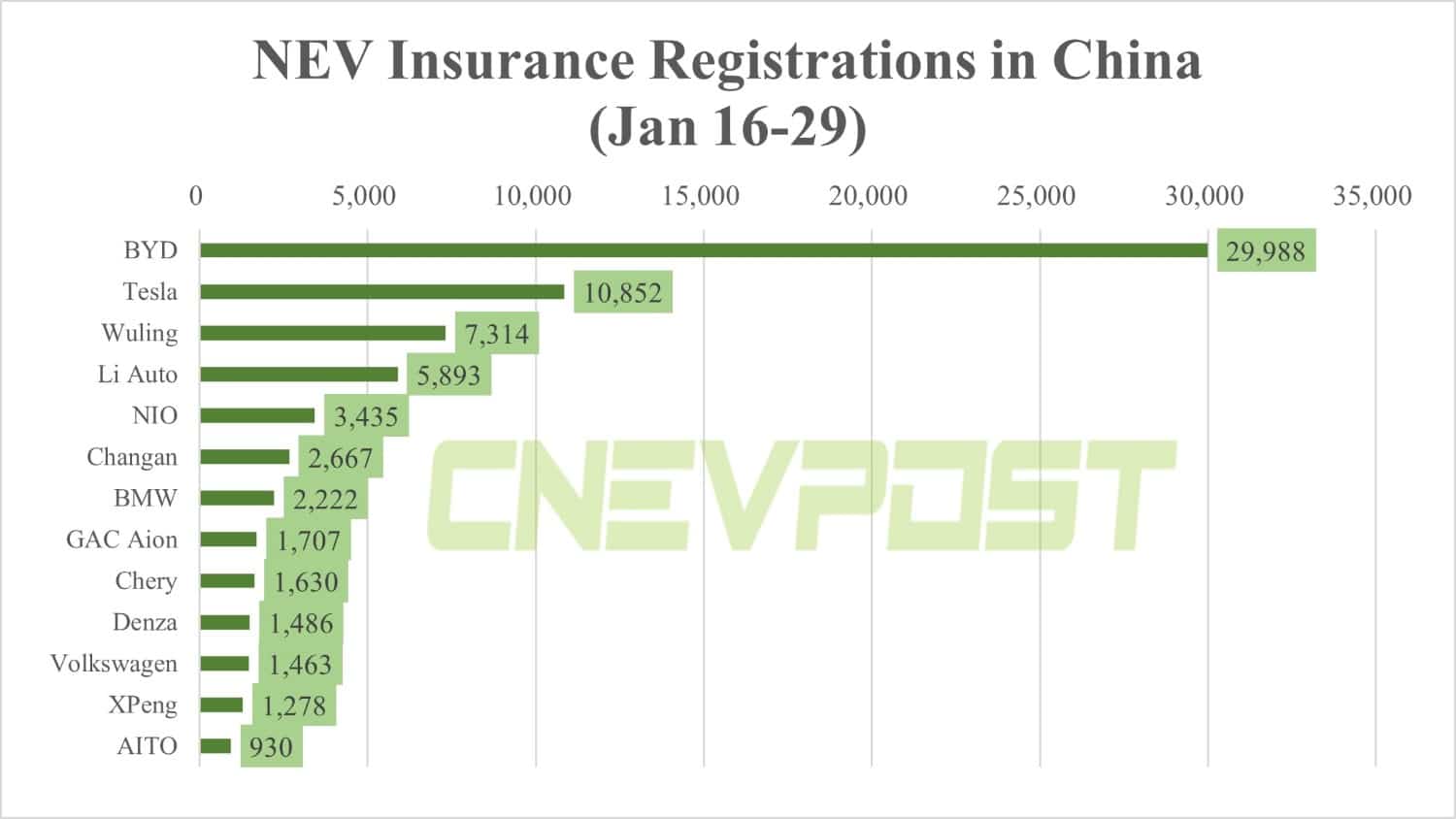The Chinese New Year holiday from January 21 to January 27 was a significant impact on car companies' sales activity.
Sales of new energy vehicles (NEVs) in China have declined significantly over the past two weeks, though this was to be expected as the vast majority of last week was during the Chinese New Year holiday.
In the third week of January, from January 16 to January 22, sales of NEVs in China, as measured by insurance registrations, were 67,439 units, down 13.55 percent year-on-year and down 31.91 percent from the previous week, figures shared by auto blogger Zhu Yulong on Weibo today show.
Sales of all passenger cars in China were 330,400 units for the week, down from 438,000 units the week before.
Of these, sales of conventional internal combustion engine (ICE) vehicles were 262,900 units in that week, down from 338,600 units in the previous week.
BYD vehicles had 24,708 insurance registrations for the week, while Tesla had 7,496 and Nio had 3,008.
In the fourth week of January, January 23 to 29, insurance registrations for all vehicles in China were 92,600, with 74,600 ICE vehicles and 18,000 NEVs. January 21 to January 27 was the just-passed Chinese New Year holiday.
BYD was at 5,280 units that week, Tesla at 3,356 units and Nio at 427 units.
In the past two weeks, insurance registrations for all cars in China were 423,000, down 24.5 percent from the previous week, the blogger said.
Of those, NEVs had 85,000 insurance registrations in the past two weeks, down 31.8 percent from the previous week. A total of 337,000 ICE vehicles were registered, down 22.4 percent from the previous week, according to the blogger.
In the past two weeks, BYD vehicles had 29,988 insurance registrations, Tesla had 10,852 and Nio had 3,435.
In the entire month of January, ICE vehicles had 890,000 insurance registrations and NEVs 262,000, according to the blogger.
On January 28, the China Passenger Car Association (CPCA) said retail sales of new energy passenger vehicles in China were estimated at 360,000 units in January, up 1.8 percent from a year earlier, but down 43.8 percent from December.
The country's retail sales of all passenger vehicles in January were expected to be 1.36 million units, down 34.6 percent from a year earlier and down 37.3 percent from December, according to the CPCA.
Auto dealers' sales pace was disrupted in January due to the impact of the Covid infection wave and the early timing of the Chinese New Year, with weaker than normal seasonal performance, the CPCA previously said.
The NEV market is facing volatility in the short term, the CPCA said, adding that consumers are in a somewhat wait-and-see mood as some manufacturers have made significant price adjustments.
In a research note sent to investors yesterday, Deutsche Bank analyst Edison Yu's team said this is largely consistent with their view and provides a reasonable path to a quarterly decline of about 20-25 percent in the first quarter.
